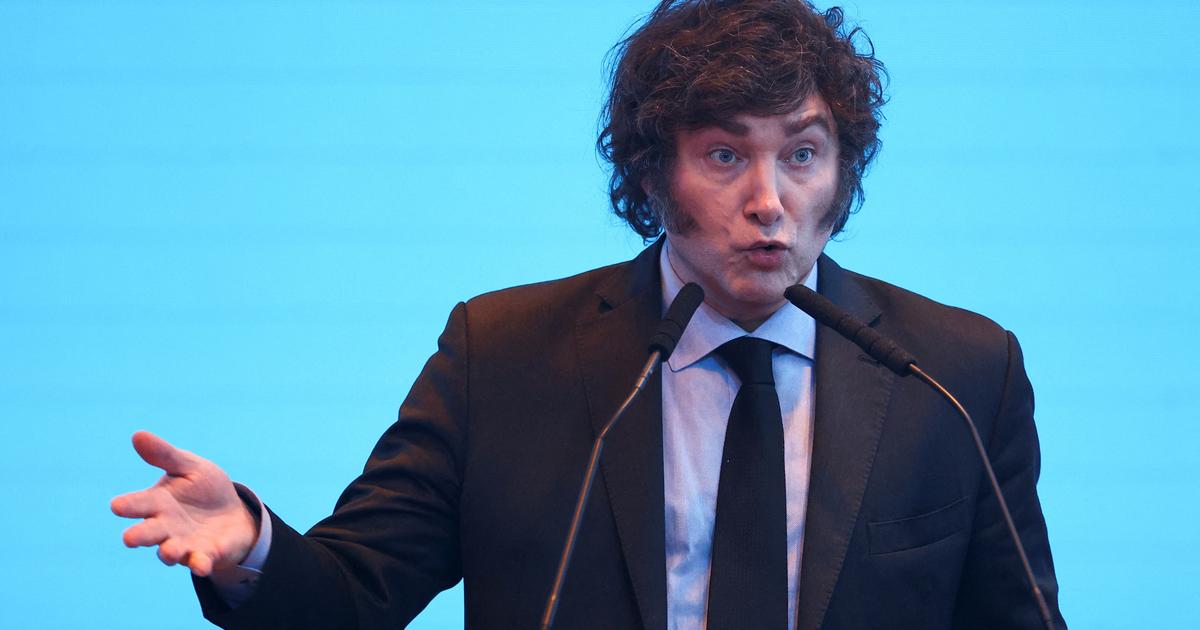Pretending that nothing has happened can be more effective than getting entrenched. Nobody expected Gustavo Petro to go out this Wednesday to demonstrate as he had announced a week earlier. He was in Brazil at the time, and it was difficult to foresee that what would become the biggest crisis his government has ever faced was brewing. In seven days he has lost his number two, Laura Sarabia, investigated for a case of illegal wiretapping; Congress and reforms have stalled; the Executive is more politically alone than ever; and his until now friend and ambassador to Venezuela, Armando Benedetti, threatens to speak until he sees the world burn. It is not known whether it is bluffing or not. Too many things on the table of the president, who has decided to throw down the path he knows best. He continues with his script and stages what gave him work, that eternal campaign that brought him to power based on platform and speech. Petro grabbed the microphone Wednesday in a corner of a square, on a makeshift stage that gets more people than possible. A rally president who asks the people to govern to change Colombia. As if he didn't have the power.
In the 10 months that the government has been in office, so much has happened that it is difficult to understand the pace of politics in Colombia. Three months before winning the elections, Petro was for much of the conservative Colombian society a kind of antichrist with the necessary tricks to turn the country into Venezuela in the blink of an eye. Many of those fell in love with the Petro president of the beginning, the one who left the economy in the hands of a centrist and moderate minister, the one who called for the communion of all Colombians to make the necessary reforms together, the one who agreed with the traditional parties or the one who met with businessmen and with former President Álvaro Uribe. That, too, was short-lived.
The conciliation evaporated at the rate of the spectacular popularity ratings. The approval of the tax reform, with broad consensus and in record time, turned out to be a mirage. The total peace that promised to end all criminal groups through negotiation runs aground as violence soars in some regions. The Government lost the initiative.
Petro wanted to make a change of model a month and a half ago. He unexpectedly dispensed with all moderate ministers and asked his people, his base, to take to the streets to defend his reforms. The majority he had achieved in Congress with parties of the right or the center was broken by the president's fear that his reforms would be undermined. The proposals began to pile up in a desnortado chamber. On the empty seats we can now hear the echo of that phrase of Petro and his ministers who said that we had to hurry: the reforms that are not taken out in the first year, do not go ahead. The first year is about to turn and Congress is paralyzed.
The president is clear about the diagnosis of what is happening. He maintains that the resistance to change of the elites is what prevents his reforms from advancing, that the press lies, that his adversaries attack him, that all the messes that are generated around him have the opposition hand behind them. He speaks of a "soft coup" against him. He compares himself to the former president of Peru Pedro Castillo, today imprisoned for an attempted self-coup d'état but whom Petro considers a political persecuted. It is true that changes generate resistance, not only in Colombia. Transformations that break inertia are not easy to carry out. It is true that there is strong opposition to the Petro government, which the Attorney General of the Nation, Francisco Barbosa, exercises more as an opponent than as a representative of an apolitical justice. It is also true that neither Petro nor his government help themselves.
The last political crisis, the most serious since the beginning of the mandate, did not heat up between his adversaries, it was forged from the very center of power in a fratricidal war between two of the people closest to the president, to whom he had entrusted his victory and his fate. His chief of staff, Laura Sarabia, and the former ambassador of Venezuela, Armando Benedetti, Petrist converts at the last minute, staged a public battle for a week that includes all the excesses that the Petro candidate had promised to conjure up: corruption, illegal wiretapping, polygraphs, cash, threats ... The departure of both, by decision of the president, was his way of trying to close a scandal that still does not end.
The most lonely Petro, without Sarabia, his number two and the hand behind the little organization of a Government with a tendency to chaos, has decided to be reissued in a previous version. The president's strategy is reminiscent of his road map during his mayoralty in Bogotá. Then, in 2013, he was dismissed by a right-wing Attorney General and disqualified for 15 years, in a decision that months later suspended the Inter-American Commission on Human Rights (IACHR). In the impasse, Petro managed to keep his people in tension, making noise in the streets. He staged mass protests and, as a victim of an unfair judicial process, strengthened his leadership among the left.
Today there is no disqualification, but the story of the soft coup serves as a glue for a left accustomed to struggle. The base sympathizers are more identified in a persecuted Petro than in a conciliatory president who agrees majorities with the conservative power of always. The president wants to meet his own again in the confrontation, in the defense of what he considers a government cornered by the hatred of the right.
"Every minister must obey the popular mandate. Minister who does not listen, leaves"; "We have seen a press that hates its vice president because of her skin color"; "Do not invite me to the social cocktails of the bankers, I do not go, invite me to have a beer there on a corner sitting on a sidewalk, invite me to a popular dance, to a Pacific viche, invite me to dance joints on the sidewalks of my peasant town of Córdoba, but do not invite me to the bacchanals of power because I am not from that," He said from the stage to the thousands of people who accompanied him.
The president wants to retake the initiative with blows rather than politics. The negotiations between parties, necessary to advance legislatively, neither start nor look close. Petro will be in Havana (Cuba) this Friday at the closing of the third cycle of the peace dialogue with the ELN. From there, he is expected to announce a temporary ceasefire with Latin America's last active guerrilla group. It would be the first big news in weeks, a way to shift the focus. The government of change that promised to transform Colombia has been changing itself again and again for ten months. Petro already has the power, but he is still looking for his place.
Subscribe here to the newsletter of EL PAÍS about Colombia and receive all the informative keys of the current situation of the country.
Subscribe to continue reading
Read without limits
Read more
I'm already a subscriber

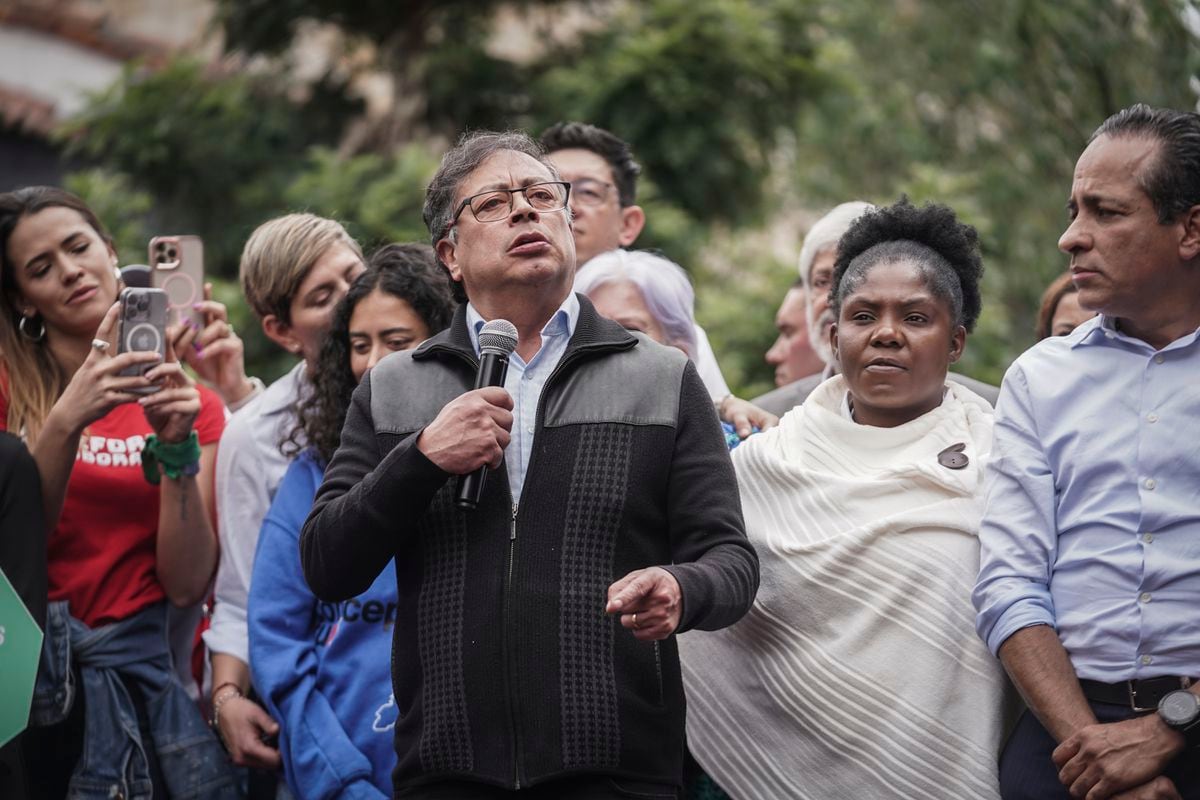
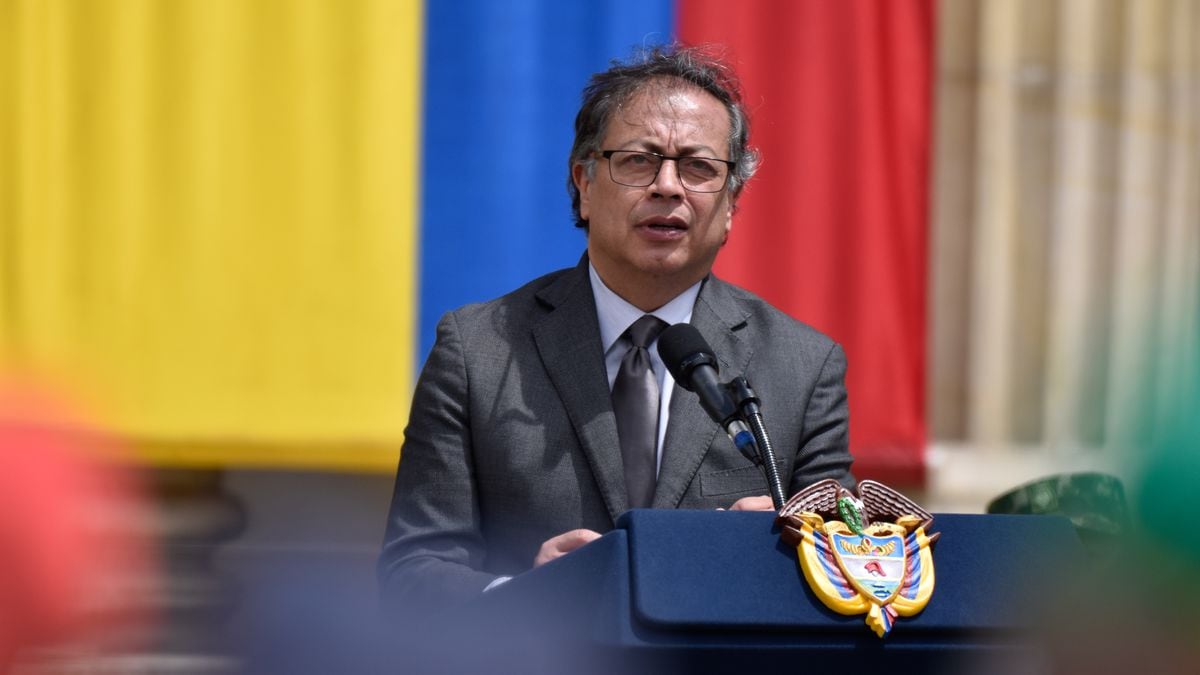
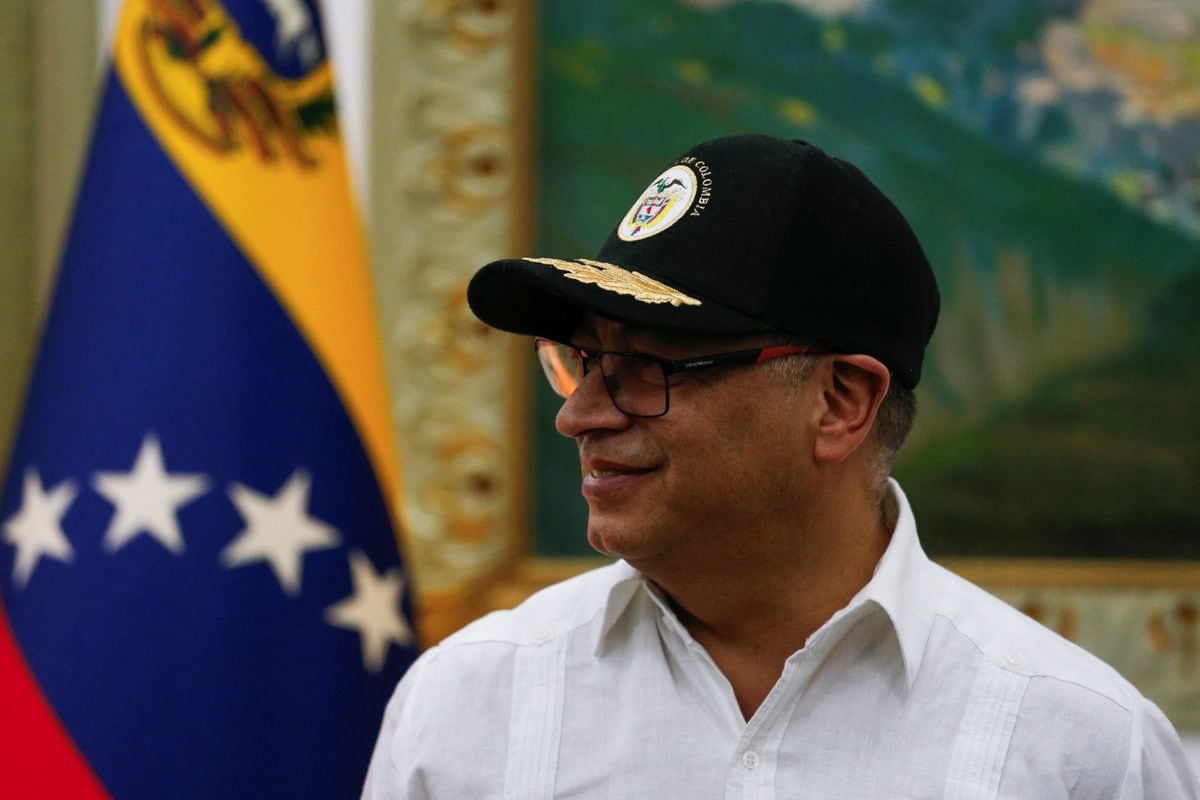
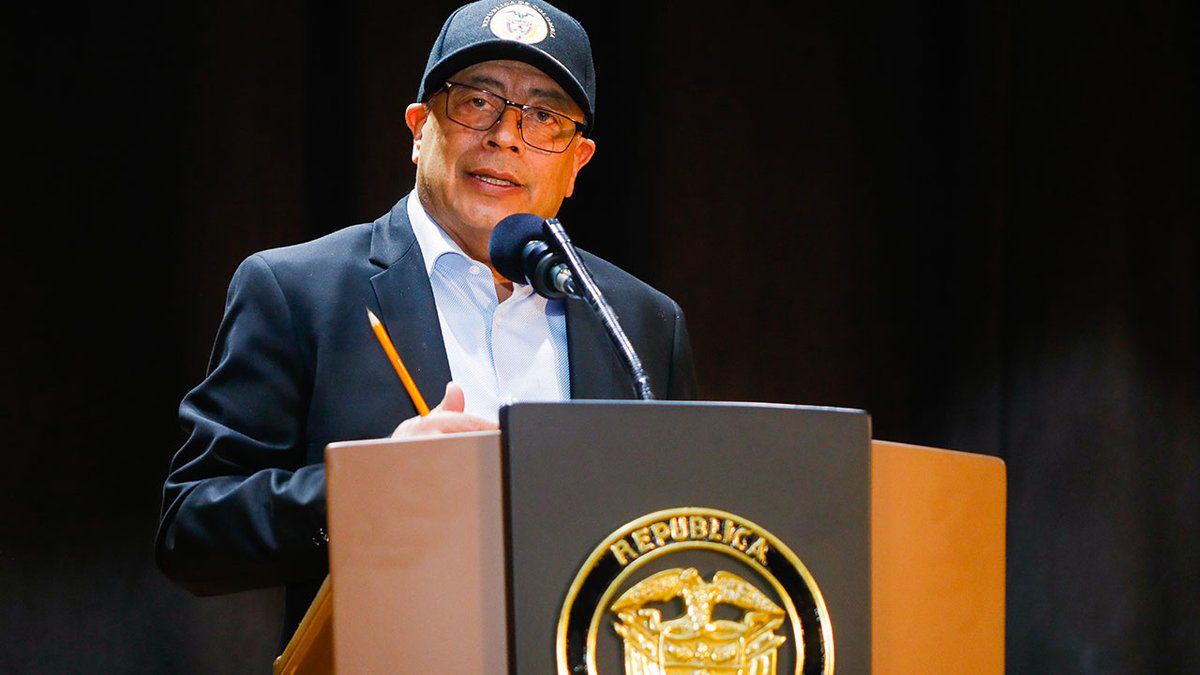
/cloudfront-eu-central-1.images.arcpublishing.com/prisa/RYAE4R2YX5G7LGEJQ74SXZI47A.jpg)
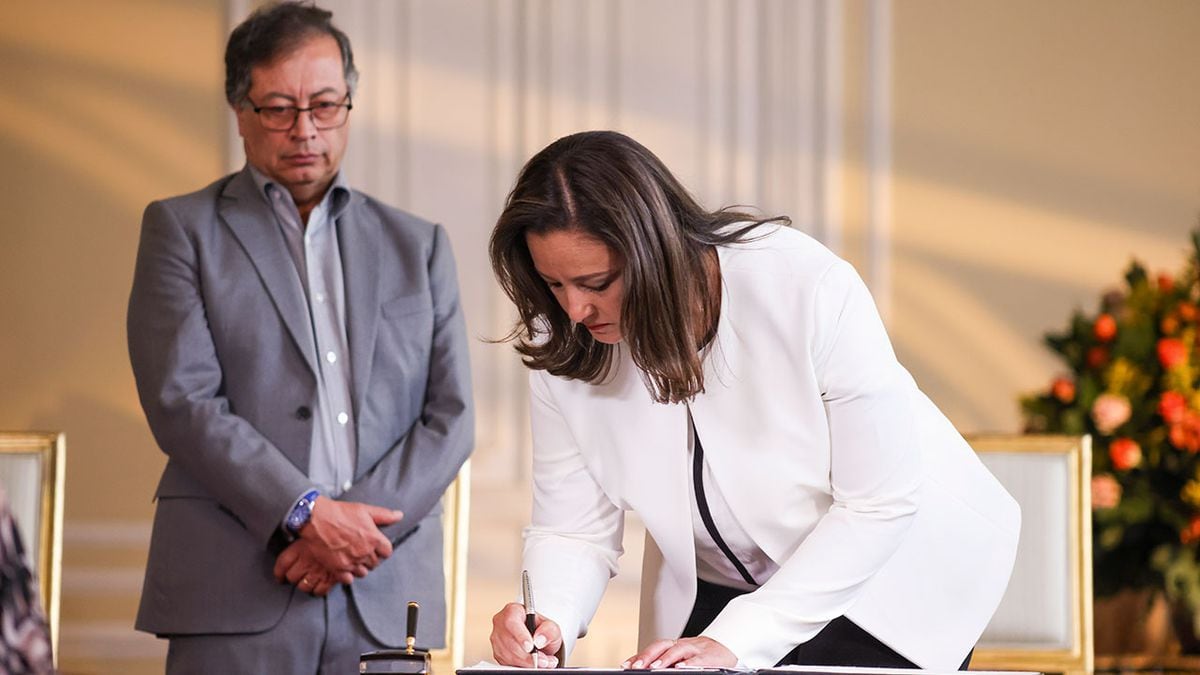
/cloudfront-eu-central-1.images.arcpublishing.com/prisa/ZORZGWU62RGZNLD7HNVBXQZRBA.jpeg)

